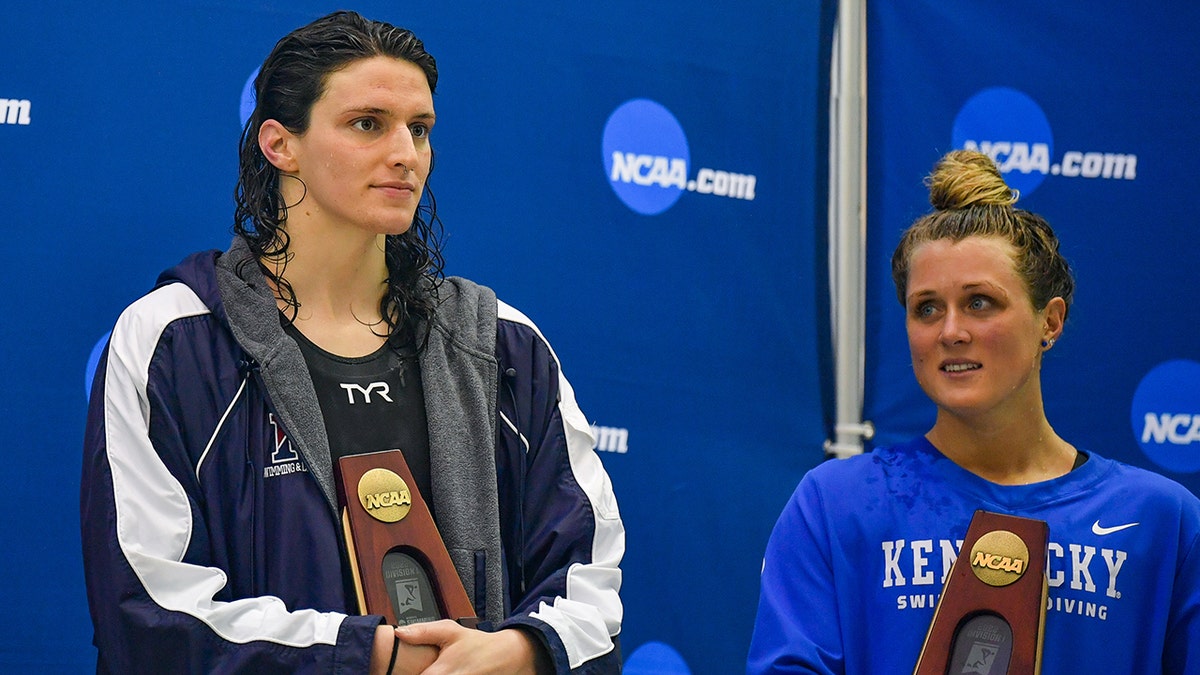International swimming organization votes to restrict transgender athletes from women's events
University of Kentucky swimmer Riley Gaines joined 'America's Newsroom' to discuss the new rules and why she supports the new policies.
One female athlete who competed against transgender swimmer Lia Thomas is touting the sport's international governing body for effectively banning transgender athletes from competing in women's events.
University of Kentucky swimmer Riley Gaines, who tied Thomas for 5th place in the 200 Freestyle finals at this year's NCAA championships, joined "America's Newsroom" to discuss the new policy and why she believes it is a critical "first step."
"It's definitely a step in the right direction," Gaines told co-host Dana Perino. "I think this is kind of the first large governing body that has prioritized fairness in women's sports, and so while it's not everything, it's definitely a bold first step and a step in the right direction."
FINA APPROVES ‘GENDER INCLUSION POLICY’ FOR TRANSGENDER SWIMMERS
FINA voted to approve the new "gender inclusion policy" on Sunday, which bars athletes who transitioned after 12 years old from competing against women. The new rule passed the governing body with a sweeping 71.5%.

University of Pennsylvania swimmer Lia Thomas and Kentucky swimmer Riley Gaines react after finishing tied for 5th in the 200 Freestyle finals at the NCAA Swimming and Diving Championships on March 18th, 2022 at the McAuley Aquatic Center in Atlanta Georgia. (Rich von Biberstein/Icon Sportswire via Getty Images)
The policy's critics call the rule discriminatory against transgender athletes, while those in favor stress the importance of fairness in women's sports.
"This is something that women have fought so hard for, for so long, 50 years to get equal opportunities and to have that kind of taken from you and to go a complete 180 from that, it's really just a slap in the face, not only for myself, but like I mentioned, past female athletes and definitely future female athletes as well," Gaines explained.
CLICK HERE TO GET THE FOX NEWS APP
Gaines highlighted the toll it takes on athletes to go into a meet competing against a transgender athlete given the massive time commitment swimmers endure over the course of their career.
"It's a huge time commitment," Gaines said. "You're practicing over 20 hours every week. You're in the water 5 hours almost every single day, and so it's a huge time commitment and to go into a meet knowing pretty much you're going to lose and to already kind of be defeated…"
"It takes a big toll on you."


